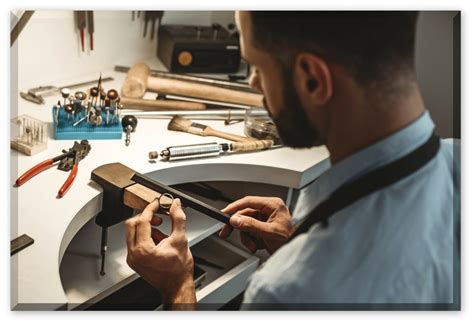Laughter, the universal language that has the power to transcend barriers and connect people from all walks of life. For those fortunate enough to possess the innate talent to make others laugh, being a comedian is more than just a job – it's a calling. With each punchline and witty remark, they have the ability to brighten even the darkest of days and bring tears of joy to their audiences' eyes. But what does it take to turn this natural gift into a successful career?
In the realm of comedy, it's not just about being funny – it's about honing one's craft and developing a unique voice that resonates with both humor enthusiasts and casual observers alike. The art of stand-up, improv, or comedic writing requires a delicate balance of timing, delivery, and a keen understanding of human nature. It's about finding the perfect combination of wit, satire, and relatability to create moments of genuine laughter.
However, becoming a professional comedian is not without its challenges. It takes tremendous dedication, perseverance, and a strong belief in oneself to navigate the tumultuous world of entertainment. It's a journey that demands countless hours of writing and practicing material, performing in front of diverse audiences, and continuously evolving one's style. It's a path filled with both triumphs and failures, but for those fueled by the passion to bring joy into the lives of others, the rewards are unparalleled.
Finding your comedic voice: Cultivating an authentic and distinctive style

In the pursuit of a successful career as a comedian, one of the most crucial and often challenging aspects is finding your own comedic voice. Every comedian possesses a unique perspective, a distinct way of looking at the world, and it is this individuality that sets them apart from the rest.
Developing your comedic voice involves a process of self-discovery, trial and error, and honing your skills. It requires expressing your thoughts, experiences, and observations in a manner that resonates with both you and your audience. It is about finding the perfect balance between authenticity and relatability.
When it comes to identifying your comedic voice, it is essential to embrace your natural strengths and interests. Reflect on what makes you laugh, what topics you find intriguing, and what experiences have shaped your perspective. These elements serve as the foundation for crafting your unique style.
Experimentation plays a crucial role in the development of your comedic voice. Take risks, try out different approaches, and explore various comedic techniques. Through this process, you will become more attuned to what works best for you, what ignites laughter, and what resonates with your audience.
Another important aspect is observing and learning from established comedians who inspire you. Study their delivery, timing, and mannerisms, but remember to not imitate them. Incorporate what you learn into your own style, adding your own personal touch and flair.
Lastly, finding your comedic voice is an ongoing journey. It is not a destination but rather a continuous process of growth and refinement. Embrace the evolution of your style, adapt to new experiences, and always strive to push the boundaries of your creativity.
In conclusion, your comedic voice is the heart and soul of your success as a comedian. Embrace your uniqueness, cultivate your style, and never stop exploring and refining your craft. By staying true to yourself and constantly evolving, you will establish a distinct presence in the comedy world.
Mastering the Art of Comedy: Paving the Way to Professional Success
In this section, we will explore the transformative journey of aspiring comedians, as they progress from humble beginnings on open mic nights to commanding center stage on grand platforms. Experience is the cornerstone upon which a successful career in comedy is built, and in this article, we will uncover the significance of honing your skills, navigating the comedy circuit, and seizing every opportunity to perform.
Making people laugh online: Harnessing the power of social media platforms

In today's digital age, the internet has transformed the way we connect, consume content, and share our experiences. Social media platforms have emerged as powerful tools for individuals to express their creativity, connect with others, and, in the case of comedians, make people laugh. The accessibility and reach afforded by these platforms have revolutionized the comedy industry, allowing aspiring comedians to showcase their talent to a global audience.
With the rise of platforms like YouTube, Instagram, Facebook, and TikTok, comedians now have a multitude of options to explore and experiment with their comedic content. By leveraging their unique sense of humor and the features and algorithms of these platforms, comedians can strategically target their audience, expand their fanbase, and gain significant online traction.
- Identify your niche: To stand out in the vast landscape of online comedy, it is essential to find your distinct voice and style. Whether it's observational humor, sketch comedy, or witty one-liners, identifying your niche will help attract a dedicated following who resonate with your content.
- Create engaging content: The key to establishing an online presence as a comedian is to consistently create and share original, high-quality content that is entertaining, relatable, and shareable. Experiment with various formats, such as videos, memes, or even live streams, to keep your audience engaged and coming back for more.
- Utilize platform features: Each social media platform offers unique features, such as hashtags, stories, reels, or live videos, that can enhance your comedic content. Familiarize yourself with these features and incorporate them creatively into your posts to maximize your reach and engagement.
- Engage with your audience: Building a loyal fanbase requires interaction and engagement. Respond to comments, create polls or quizzes, and encourage your audience to participate in the conversation. By valuing their feedback and involving them in your comedy journey, you can foster a strong community that supports and shares your content.
- Cross-promote and collaborate: Networking and collaboration with other comedians or influencers in related fields can substantially boost your online presence. Consider cross-promoting each other's content, collaborating on joint projects, or participating in popular trends or challenges to expand your reach and tap into new audiences.
- Analyze and adapt: The digital landscape is ever-evolving, and it's crucial to stay updated with the latest trends and algorithms. Monitor your analytics, study audience insights, and adapt your content strategy accordingly. Experiment with new ideas, learn from feedback, and continually refine your comedic style to stay relevant and keep your audience engaged.
Remember, the path to success in the online comedy world may not be easy, but with persistence, creativity, and a deep understanding of your audience, you can turn your passion for making people laugh into a thriving online career.
Networking with the comedy community
Building connections and fostering relationships within the comedy community is a crucial step towards a successful career as a comedian. By connecting with fellow comedians and industry professionals, you can gain valuable insights, learn from experienced individuals, and create opportunities for collaborations and career growth.
One way to connect with the comedy community is by attending live comedy shows, open mic nights, and comedy festivals. These events provide a platform for comedians to showcase their talent, and they also serve as networking opportunities. By engaging with other performers and audience members, you can start building relationships and establishing yourself within the community.
Another effective way to network is to join comedy workshops, classes, and writing groups. These environments allow you to connect with aspiring comedians who share your passion for laughter and humor. Through group exercises, constructive feedback sessions, and brainstorming sessions, you can refine your skills, exchange ideas, and form lasting connections.
Utilizing online platforms and social media networks is also essential for networking in the comedy community. Joining comedy-specific groups on platforms such as Facebook and Reddit can provide you with a space to interact with like-minded individuals, share your work, and gain exposure. Additionally, networking through professional platforms like LinkedIn can help you connect with industry professionals, agents, and talent managers who can assist you in advancing your comedy career.
Attending industry events such as comedy conventions, conferences, and panels is another avenue for making connections. These events bring together comedians, agents, bookers, and other industry professionals in one place, allowing you to network and learn from established individuals in the field. Be sure to come prepared with business cards, a polished elevator pitch, and a genuine interest in engaging with others.
- Attend live comedy shows, open mic nights, and festivals
- Join comedy workshops, classes, and writing groups
- Engage with comedy-specific online platforms and social media networks
- Connect with industry professionals through professional platforms like LinkedIn
- Attend industry events such as conventions, conferences, and panels
Remember, networking is not just about self-promotion; it's about building meaningful relationships and supporting fellow comedians. By actively engaging with the comedy community, you can create a strong network of individuals who can inspire, uplift, and guide you on your journey to becoming a successful comedian.
Polishing your act: Enhancing your performance through continual honing

Once you've embarked on the journey of being a comedian, it's crucial to continuously refine and improve your material. This process of polishing your act involves carefully crafting your jokes, honing your delivery, and staying up-to-date with current trends and audience preferences.
Crafting your jokes: Creating humorous and engaging material is the heart of being a successful comedian. Take the time to brainstorm ideas, explore various perspectives, and experiment with wordplay, puns, and satire. Refine your jokes by testing them on diverse audiences and paying attention to their reactions and feedback. | Honing your delivery: Delivery is a crucial aspect of comedic performance. Practice the timing, pacing, and intonation of your jokes to optimize the comedic effect. Experiment with different gestures, facial expressions, and body language to enhance your punchlines and connect with your audience on a deeper level. |
Staying relevant: To succeed as a comedian, it's essential to stay informed about current trends, popular culture, and social issues. Incorporate timely references into your material to resonate with your audience and demonstrate your awareness of the world around you. Adapt and adjust your act as societal dynamics evolve. | Seeking feedback: Constructive criticism is invaluable in the journey of refining your comedic skills. Surround yourself with fellow comedians, mentors, or trusted friends who can provide honest and helpful feedback. Actively seek opportunities to perform and participate in open mic nights, comedy workshops, and comedy clubs to receive input from different perspectives. |
Analyzing your performances: After each performance, take the time to reflect and analyze what worked and what didn't. Identify patterns, learn from your mistakes, and adapt your material accordingly. Keep a journal to jot down observations, new ideas, and inspirations, ensuring that you are constantly growing and evolving as a comedian. | Developing a unique style: While it's essential to learn from and be inspired by established comedians, it's equally important to develop your own unique style. Discover your comedic voice, embrace your natural quirks, and let your personality shine through your performances. Being authentic and genuine will help you stand out in a crowded industry. |
Taking the plunge: Transitioning from a pastime to a full-time vocation
Embarking on a new phase in one's life can be daunting, especially when it comes to pursuing a career based on something as subjective as humor. However, for those who possess a genuine ardor for entertaining others and enticing laughter, making the switch from comedy as a beloved hobby to a serious profession can be an exhilarating endeavor.
Commitment
Transitioning into a full-time career as a comedian demands unwavering dedication and tenacity. This newfound commitment necessitates consistent and rigorous honing of comedic skills, such as developing impeccable timing, refining joke structure, and mastering the art of improvisation. To stand out among a sea of aspiring comedians, it is essential to invest ample time and energy in crafting a unique persona and style.
Market Research
Before plunging into the world of professional comedy, conducting thorough market research is crucial. This entails exploring the local comedy scene, attending open mic nights, and studying successful comedians to gauge the current trends and demands of the industry. Having an understanding of the target audience and their preferences can significantly impact one's chances of success.
Building a Network
Establishing strong connections within the comedy community is invaluable when transitioning from a hobbyist to a full-time comedian. Networking with fellow comedians, agents, and venue owners can provide opportunities to showcase talent, secure gigs, and gain crucial guidance from industry veterans. Collaborations and mentorships can enhance one's credibility and pave the way for a flourishing career.
Financial Considerations
Achieving financial stability as a full-time comedian requires careful planning and foresight. It is vital to develop a comprehensive financial strategy, including budgeting for personal expenses, investing in professional development opportunities, and understanding the fluctuating nature of income in the comedy industry. Building a robust portfolio and diversifying income sources, such as through writing, acting, or podcasting, can provide additional financial security.
Embracing Challenges
The journey of transitioning from a hobbyist comedian to a professional may present various challenges and obstacles. From facing rejection to navigating the competitive nature of the industry, it is crucial to remain resilient and persistent. Embracing these challenges and viewing them as opportunities for growth and learning will ultimately contribute to the development of a sustainable and rewarding career.
In summary, taking the leap from comedy as a pastime to a full-time profession necessitates unwavering commitment, extensive market research, networking, financial planning, and a willingness to embrace challenges. By embarking on this exciting transition, aspiring comedians can turn their passion for humor into a fulfilling and prosperous career.
Overcoming Setbacks: Rising above obstacles on the path to achieving success

As you embark on your comedic journey, it is crucial to acknowledge that setbacks and challenges are inevitable. These obstacles may arise in various forms, testing your resilience, determination, and adaptability. In order to truly thrive in the world of comedy, it is vital to embrace these setbacks as learning opportunities and find ways to overcome them.
1. Embracing Failure with Resilience
Failure is an integral part of any creative pursuit, including comedy. It is essential to develop a strong sense of resilience to bounce back from disappointments or performances that didn't meet your expectations. The ability to view failures as stepping stones towards growth and improvement is what separates successful comedians from the rest.
2. Learning from Criticism
Criticism can be tough to handle, but it is crucial for your growth as a comedian. Constructive feedback from fellow comedians or audience members can provide invaluable insights into areas that require improvement. Embrace criticism as an opportunity to refine your comedic style and delivery, and use it to your advantage.
3. Adapting to Change and Evolving Trends
The world of comedy is constantly evolving, with new trends, styles, and tastes emerging. In order to stay relevant and connect with your audience, it is important to adapt and embrace change. Be open to trying new material, exploring different comedic techniques, and evolving your style to resonate with the ever-changing dynamics of comedy.
4. Building a Supportive Network
Surrounding yourself with a supportive network of fellow comedians, mentors, and friends who share your passion can be immensely beneficial. This network can offer guidance, motivation, and a safe space to bounce ideas and discuss challenges. Collaborating with like-minded individuals can also expose you to new opportunities and help you navigate setbacks more effectively.
5. Maintaining Persistence and Dedication
Persistence and dedication are key elements in overcoming setbacks and achieving success as a comedian. The road to success is rarely smooth, and it requires consistent effort, practice, and perseverance. Remember why you started your comedic journey and stay focused on your ultimate goal, even in the face of adversity.
In conclusion, setbacks are an inevitable part of the path to success as a comedian. By embracing failure, learning from criticism, adapting to change, building a supportive network, and maintaining persistence, you can overcome these challenges and turn them into stepping stones towards achieving your comedic aspirations.
FAQ
How can I turn my passion for laughter into a successful career as a comedian?
To turn your passion for laughter into a successful career as a comedian, you can start by honing your comedy skills through practice and performance. Attend open mic nights, join comedy clubs or groups, and take improv classes to improve your comedic timing and delivery. Build a strong portfolio of jokes and routines to showcase your talent. Network with fellow comedians and comedy industry professionals to gain exposure and opportunities. Ultimately, continuous hard work, persistence, and a unique comedic style will be essential in establishing a successful career as a comedian.
Is it necessary to have natural comedic talent to become a successful comedian?
While natural comedic talent can certainly give you an advantage, it is not an absolute necessity to become a successful comedian. Comedy, like any other skill, can be learned and developed over time. With dedication, practice, and a genuine passion for making people laugh, anyone can improve their comedic abilities. It's important to find your own unique comedic style and voice, and embrace your strengths while working on improving any areas that may need development. Ultimately, a combination of natural talent, hard work, and perseverance will greatly increase your chances of success as a comedian.
What is the best way to connect with the audience as a comedian?
Connecting with the audience as a comedian is crucial for a successful performance. One of the best ways to achieve this is by being relatable. Observational comedy, which involves commenting on everyday situations that most people can relate to, can help create a strong connection with the audience. Additionally, engaging the audience through interactive elements, such as asking questions or involving them in jokes, can also foster a connection. It's important to read the room and adjust your performance accordingly to ensure that the audience feels involved and entertained.
Are there any specific tips for handling hecklers or difficult audience members as a comedian?
Dealing with hecklers or difficult audience members is a common challenge for comedians. One key tip is to stay calm and composed. Engaging in a verbal confrontation with an audience member can derail the performance and alienate the rest of the audience. Instead, try to diffuse the situation with humor or by acknowledging the heckler without giving them too much attention. Maintaining control of the stage and focusing on your prepared material is crucial. If the situation escalates and becomes disruptive, it may be necessary to involve the venue staff or security to handle the situation accordingly.
What are some ways to market myself as a comedian and gain more exposure?
Marketing yourself as a comedian is essential for gaining exposure and attracting potential opportunities. Utilize social media platforms to create a strong online presence. Regularly share funny content, clips of your performances, or even behind-the-scenes glimpses into your comedic journey. Engage with your followers and respond to comments and messages. Additionally, consider creating a professional website or online portfolio to showcase your work and provide a means for booking inquiries. Collaborate with other comedians or local comedy clubs to arrange joint shows or events, which can help expand your audience reach. Lastly, attend comedy festivals and competitions to network with industry professionals and potentially secure performance opportunities.
How can I turn my passion for laughter into a successful career as a comedian?
Turning your passion for laughter into a successful career as a comedian takes time and effort. Firstly, you should start by practicing your comedic skills by performing at open mic nights and local comedy clubs. Networking with other comedians and attending comedy workshops can also help you improve your craft. Additionally, creating a strong online presence through social media and uploading videos of your performances can help you gain more visibility. It's important to keep refining your material and adapting it to different audiences. Building a fan base and getting booked for paid gigs may take time, but with persistence and dedication, you can turn your passion for laughter into a successful career.
Is it possible to have a successful career as a comedian without any formal training?
While formal training is not a requirement for a successful career as a comedian, it can certainly be beneficial. Many successful comedians have honed their skills through years of experience, trial and error, and learning from other comedians. However, if you have a natural talent for comedy and a unique sense of humor, you can still succeed without formal training. It's important to study the art of comedy through watching and analyzing performances of successful comedians, reading books on comedy techniques, and constantly working on improving your timing, delivery, and material. Networking with other comedians and performing in front of different audiences will also help you fine-tune your skills and build a successful career.



